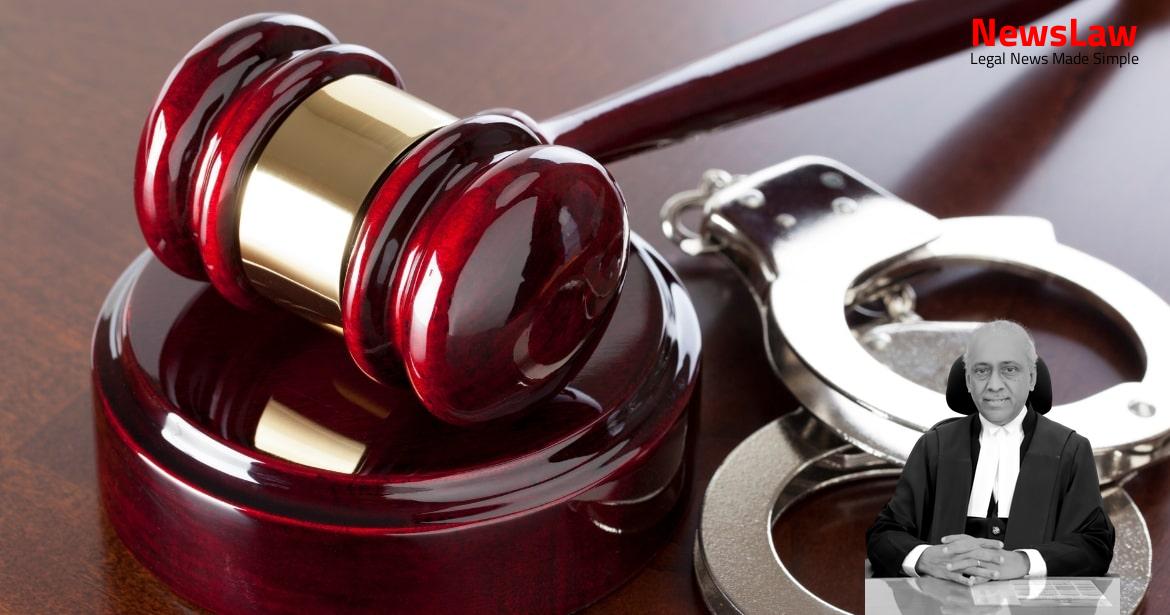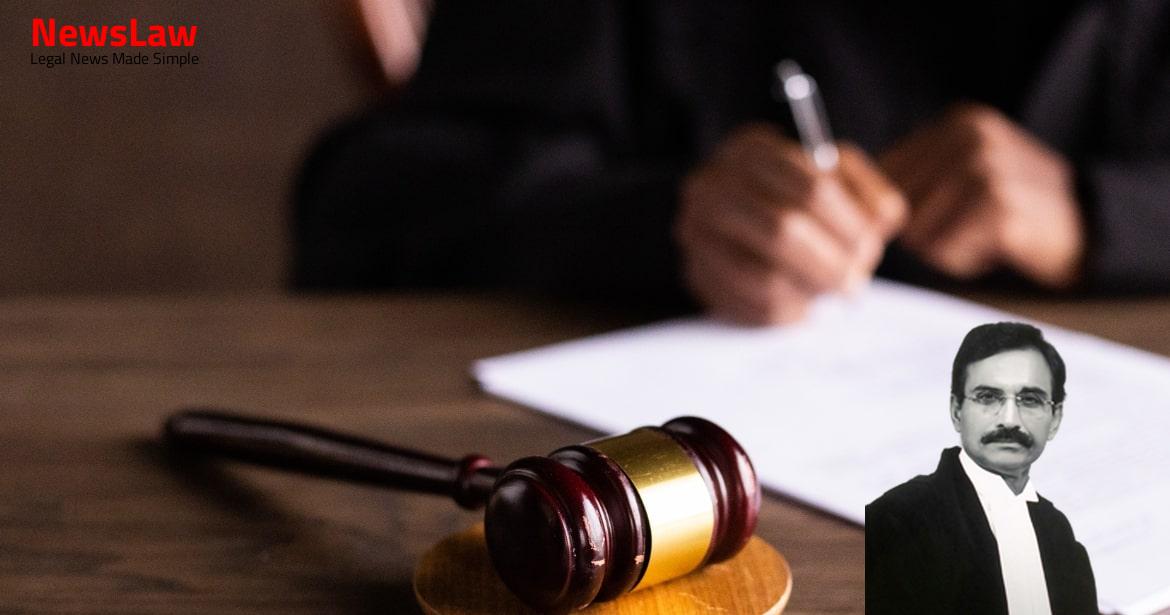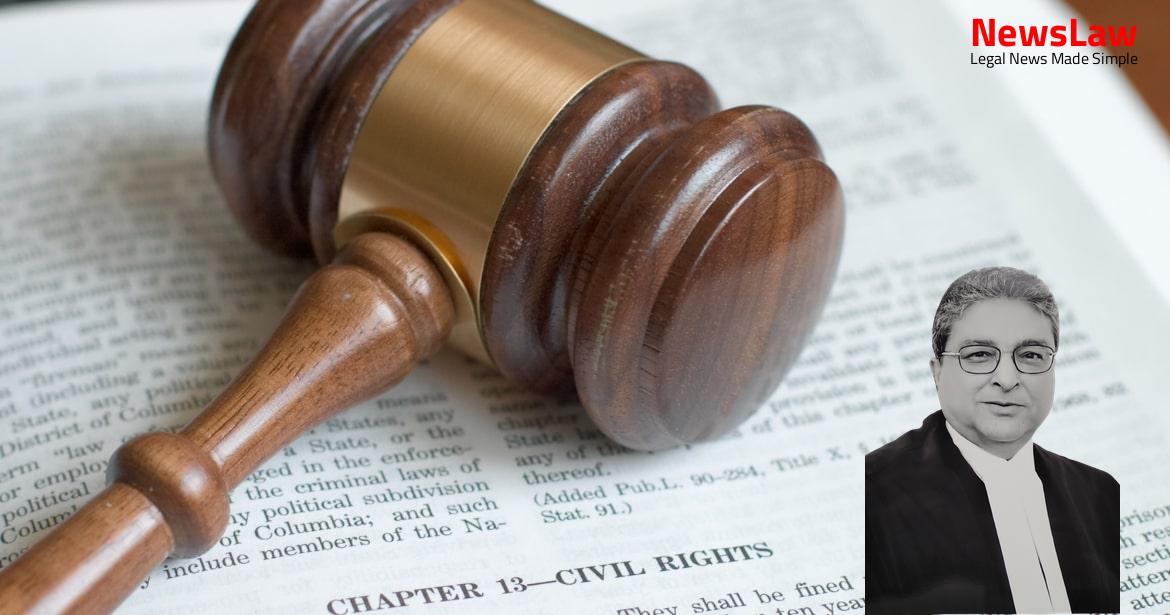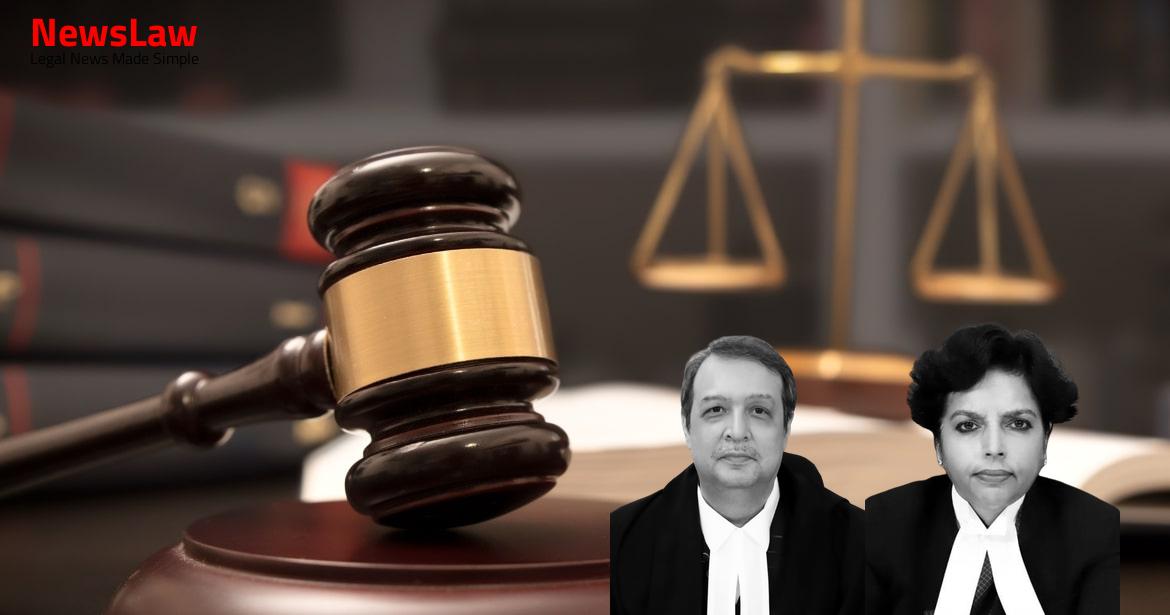The legal analysis of court jurisdiction in transfer petitions is paramount in ensuring fair and just proceedings. Understanding the complexities of probate proceedings, civil suits, and jurisdictional challenges is crucial. Dive into the intricate legal details of a recent case where transfer petitions were filed to move civil suits between different courts. Stay informed about the nuances of court jurisdiction. #LegalAnalysis #TransferPetitions #CourtJurisdiction
Facts
- The transfer petitions involve the transfer of a partition suit and a testamentary case to different courts for trial.
- The eldest son filed the first transfer petition in 2016, seeking to transfer the partition suit from Delhi to Nainital.
- The daughter filed the second transfer petition in 2019, seeking to transfer the testamentary case from Uttarakhand to Delhi for joint trial with the partition suit.
- Key aspects to consider include the jurisdiction of each court, the properties involved, and the history of the civil suits.
- The eldest son’s petition and the daughter’s petition are discussed in the context of their claims and counterclaims over the properties mentioned in the Will.
- The complexity of the case arises from the multiple civil suits, the transfer petitions, and the jurisdictional challenges.
- The death of the eldest son during the proceedings adds another layer of complexity to the case.
- The summary highlights the intricacies of the legal proceedings and the disputes within the family over inheritance.
Also Read: Legal Analysis on Withdrawal from Land Acquisition
Issue
- The grounds on which the transfer of the partition suit from Delhi to Nainital is sought are to be analyzed.
- The reasons for seeking the transfer of the partition suit need to be considered.
- The justification provided for transferring the partition suit from Delhi to Nainital is crucial.
Also Read: Interpretation of Section 56(2) of Electricity Act
Arguments
- The petitioner, a senior citizen with multiple health issues, has filed a transfer petition citing various reasons.
- The petitioner claims to be the eldest sibling who has set up a Will, making testamentary proceedings essential to prioritize over the partition suit.
- Referring to the Indian Succession Act, the petitioner argues that grants of administration by the District Court cannot have effect in other states unless specific conditions are met.
- The subject matter of the suit involves immovable property in Nainital, falling under the jurisdiction of the competent court there.
- The convenience and location of the parties should be considered in a transfer petition, especially regarding testamentary proceedings.
- Several court decisions, such as Ishwardeo Narain Singh vs. Smt. Kamta Devi, Chiranjilal Shrilal Goenka vs. Jasjit Singh, T. Venkata Narayana vs. Venkata Subbamma, and Balbir Singh Wasu vs. Lakhbir Singh, are cited by the petitioner’s counsels to support their argument.
- Most contentions in the case are on factual foundation.
- Respondents argue that testamentary proceedings were initiated in Uttarakhand after seven years of the partition suit in Delhi.
- Respondents claim petitioner in the first transfer petition abused the Court’s process.
Also Read: Legal Analysis: Surveyor’s Report and Insurance Claim Discrepancy
Analysis
- The Indian Succession Act, 1925 is divided into 11 parts, with Part VI comprising 23 Chapters relating to Testamentary Succession.
- Sections 57 to 191 of the Act are included in Part VI.
- Section 213(2)(i) along with Clauses (a) and (b) of Section 57 mandate seeking probate or letters of administration for establishing a right as executor or legatee under a Will, applicable to certain Wills made within specific territories.
- The legal contention that the partition suit should follow the testamentary case in T.P (C) No.970 of 2016 is rejected.
- Convenience of parties, as argued by the petitioner, is not a valid reason to transfer proceedings.
- The petitioner’s delay in filing testamentary proceedings and subsequent actions indicate a strategic maneuver rather than genuine requirement.
- Both the High Court of Delhi and the District Court in Nainital have concurrent jurisdiction over the properties mentioned in the Will.
- The petitioner could have filed testamentary proceedings in the High Court of Delhi and sought withdrawal of the partition suit to be tried together.
- Section 273 and Section 300 of the Indian Succession Act confer jurisdiction over probate proceedings to both the District Judge and the High Court.
- The actions and decisions of the petitioner indicate a lack of necessity for probate proceedings and strategic maneuvering to take advantage of legal principles.
- The petitioner’s delay in taking appropriate legal actions weakens their contention for transfer of proceedings.
- The decision in Balbir Singh Wasu did not consider the bar under Section 264(2) when discussing the application for probate in different parts of the country.
- Probate Court has exclusive jurisdiction to grant probate, parties cannot confer jurisdiction on an arbitrator regarding proof of the Will.
- Balbir Singh Wasu clarified that the civil suit outcome does not conclude the probate proceedings, and a decision on probate will be determined by the High Court.
- Balbir Singh decision transferred probate proceedings from the High Court to a District Court for combined hearing with a civil suit.
- The case of Nirmala Devi vs Arun Kumar Gupta emphasized that the Will must be proved through a probate proceeding as per Indian Succession Act.
- The case did not mandate probate/letters of administration for all Wills nationwide.
- Balbir Singh Wasu addressed whether probate proceedings can proceed after a civil suit for declaration and injunction has been filed.
- The case Ishwardeo Narain Singh highlighted the probate court’s role in determining the validity of a Will according to legal requirements.
- Section 57 of the Act applies to Wills made by Hindus, Buddhists, Sikhs or Jainas on or after September 1, 1870.
- The provisions of Schedule III apply subject to restrictions and modifications specified therein.
- Marriage does not revoke a Will or codicil.
- Section 264 imposes a bar on Courts beyond Calcutta, Madras, and Bombay from receiving probate applications unless authorized by the State Government.
- Part VIII contains important provisions in Sections 212 and 213 regarding intestate’s property and rights as executor or legatee respectively.
- Section 212 deals with the right to intestate’s property, while Section 213 deals with establishing the right as executor or legatee under a Will.
- Section 264 grants the District Judge jurisdiction in granting and revoking probates and letters of administration within their district.
- No right to property of a person who died intestate can be established without letters of administration from a Court of competent jurisdiction.
- No right as executor or legatee under a Will can be established without probate or letters of administration granted by a Court of competent jurisdiction.
- The jurisdiction to grant probate or letters of administration is limited to courts in Calcutta, Madras, Bombay, or as notified by the State Government.
- Certain classes of persons must obtain probate or letters of administration for their Wills to be relied upon before a Court of justice.
Decision
- Transfer Petition (C) No. 970 of 2016 is dismissed.
- Transfer Petition (C) No. 2779 of 2019 is allowed, and the Testamentary Case No. 01 of 2019 pending in the High Court of Uttarakhand is ordered to be transferred to the High Court of Delhi.
- The partition suit in C.S No. 126 of 2016 pending in the Additional District Court, Saket, Delhi, shall stand transferred to the High Court of Delhi and clubbed with the testamentary proceeding for joint disposal.
Case Title: RAVINDRA NATH AGRAWAL Vs. YOGENDER NATH AGRAWAL (2021 INSC 86)
Case Number: T.P.(C) No.-000970-000970 / 2016



